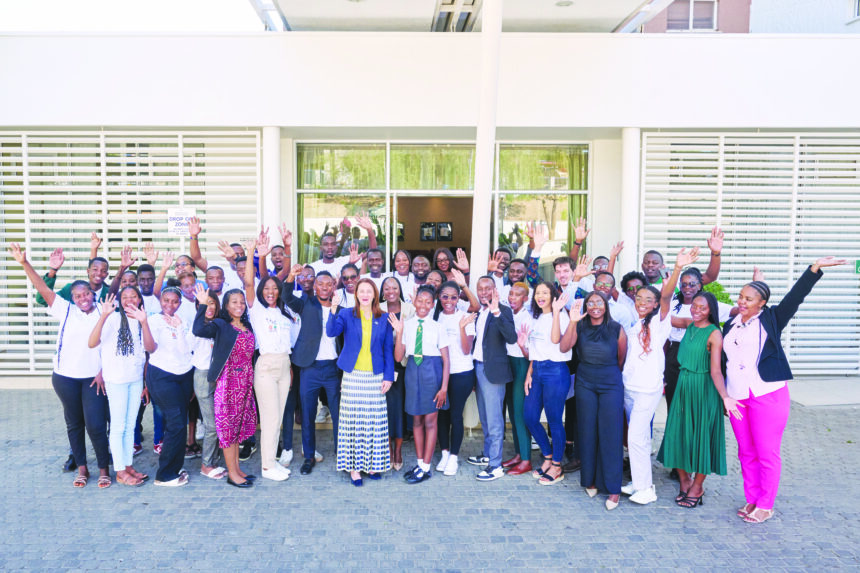About 50 youth delegates from across the country participated in the Local Conference of Youth (LCOY) 2024 recently, and held discussions where they explored and developed solutions to Namibia’s climate challenges.
Talking to Future Media, Jasper Kassoma, a member of the organising committee and youth delegate to COP29, said they want to mainstream contributors, and ensure that they come up with realistic solutions to curb the crisis.
He is one of the Namibian delegates who will attend COP 29 at the United Nations Climate Change Conference, which will take place in Baku, Azerbaijan from 11 to 22 November 2024.
UN Climate Change Conferences (or COPs) take place every year, and are the world’s only multilateral decision-making forum on climate change that brings together almost every country on Earth.
“We want to make sure that young people are capacitated, and have an entry point on who to talk to if they are to engage in climate action,” he said.
He stated that climate change affects everyone, so it is up to everyone to be part and parcel of all the decision-making in an organised manner.
“Reflecting on the LCOY 2024, I feel incredibly grateful to have been part of the organising team. Bringing together so many dedicated young leaders, each committed to finding real solutions to our climate challenges, was both inspiring and humbling,” he added.
The good governance researcher believes that the ideas exchanged have left him hopeful about what they can achieve when they work together.
He said the experience is a powerful reminder that each voice and effort matter, and that true impact grows from collective commitment.
Ambassador to Namibia Ana Beatriz Martins said Namibia feels the effects of extreme temperatures in its agriculture, declining crop yields, threatened livestock and the very livelihoods of almost half of the population.
“The European Union has long valued its partnership with Namibia, a partnership that extends beyond trade and development into the very heart of climate action. To reach Namibia’s ambition to lead on green energy, we are working closely with authorities, civil society organisations and the private sector on supporting technical and vocational education (TVET) programmes, as well as upskilling and reskilling workers required for expanding solar grid access,” she said during the summit.
The diplomat added that in order to not leave anyone behind, they are engaging with Namibia on ways to increase resilience in rural communities.
She said; “Whether it is through capacity-building for climate adaptation, improving infrastructure to withstand climate shocks or supporting civil society to engage in evidence-based advocacy, we wish for a partnership where Namibia’s growth is sustainable and inclusive”.
The summit is, therefore, a critical space for youth to step up, engage in dialogue, influence policy decisions, and hold those accountable who directly impact their future.
–psiririka@nepc.com.na


